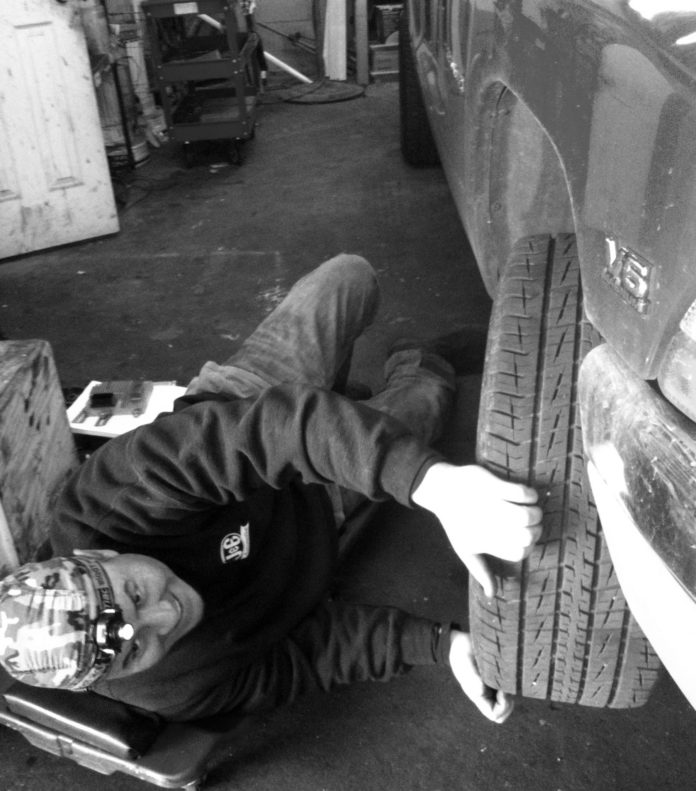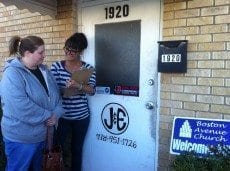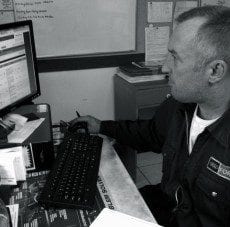Tulsans Help Working Poor Keep Their Vehicles Working
BY JOSH MARTIN
Shortly before my 16th birthday, using four years of paper route and lawn mowing money I brought a car. Per my father’s rules, I paid my own insurance, gasoline, and repairs. It was expensive to have the car. But I was so excited to have the new freedom that I didn’t mind.
The car broke down a lot. Not a little bit, a lot. Having purchased the car from our family mechanic initially when it broke down, I took it back to him for repairs. I ran out of money.
I had a car that frequently did not run and insufficient money to fix it. I was back on foot.
Now in a position where I had to find rides with friends or use public transportation, I discovered it was essentially impossible to get where you needed to be when you needed to be there using the city bus system. There were no city bus stops southbound from Pine to 21st Street on Peoria so I was late for my paper route. It was a long walk. Luckily, no one but my customers noticed, and it was really hard to get fired from a Tulsa Tribune paper route.
I was fortunate to grow up in a family where food, clothing, and utility payments were not concerns. But I was quickly becoming familiar with the necessity and expense of reliable transportation.
I was also fortunate that my parents tolerated my friend Pat and me working on my car almost non-stop in their driveway for months until we learned how to make it run most of the time. Paper routes and lawn mowing eventually led to real jobs, and transportation became more important.
I gained an understanding of how critical it was to be able to get to work on time, as well the consequences of not being there.
Fast-forward 20 years: I still love working on cars and was trying to find a way to become more active in my church, Boston Avenue Methodist. While there were many opportunities to volunteer, I realized I probably wasn’t cut out for many of them.
One Sunday the bulletin contained a request for volunteers for a car care clinic project benefitting people who could not afford to have their vehicles repaired. Since I operate my own repair shop this seemed to be natural fit.
After meeting Lonnie Vaughan, founder and citywide organizer, I learned the Car Care Clinic had been operating for nine years with volunteers from at least five different churches.
One unique feature of the clinic is the volunteers with different beliefs and backgrounds. There are Baptists, Methodists, Presbyterians, Evangelicals, Non-Denominationalists, and even a few who may be agnostic or atheist.
They come together to provide a very basic service needed in the community. The clients need not have the same beliefs as the volunteers, and the volunteers may not have the same beliefs as each other, but all are in agreement that transportation is important and that through working together this need can be met.
The Car Care Clinic’s basic mission is to help those in need with automotive service they might otherwise not be able to afford. Whether the need for the car arises from a necessity to get to work, the doctor, the grocery store, or for transporting children to school, the Car Care Clinic is there to provide assistance. The only cost to the clients is the parts. All labor is provided free of charge.
The clinic initially began in church parking lots. Volunteers helped by performing oil changes, brake jobs, and many small repairs that allowed the clients to keep their cars operating. Over the past few years, the clinic has been able to move inside to two different facilities.
One is a volunteer facility at J&E Automotive [my shop], 1920 East 6th Street, and at Rivergate Church, 71st and Peoria. With access to these indoor, equipped facilities, the Car Care Clinic has been able to expand not only the range of services it can provide, but the number of clients it can help.
The Car Care Clinic can now provide not only basic services mentioned above, but can help with struts, shocks, engine diagnostics, suspension and steering issues, as well as heat, air, and a variety of electrical and mechanical problems.
In 2013, the Car Care Clinic helped approximately 220 individual clients with nearly 600 repairs.
2014 will be the Car Care Clinic’s 12th year of operation. Thanks to generous charitable donations, the clinic was able to hire Kristy Hayes as its first full-time staff member. This has allowed considerable improvements in planning and scheduling. There are now four clinics per month, all on Saturdays, and plans are in the works to add a fifth.
Mark Hanne of Liberty Church, organizer and operator of a similar ministry that actually predates the Car Care Clinic by several years, has recently joined forces with the Car Care Clinic so that an ever-increasing number of people can receive assistance.
The clinic is looking forward to the possibility of opening its own permanent facility that can eventually provide five-day-a-week services and incorporate auto-repair training programs for ex-convicts. In cooperation with Boston Avenue United Methodist Church, the Car Care Clinic will be participating in a recurring program with other aid agencies to address holistic solutions to the problems faced by those in need, including housing, food, clothing, utilities, and transportation.
The Car Care Clinic’s goal for 2014 is to try to increase the number of individual clients assisted to a number exceeding 300.
The wonderful thing about the Car Care Clinic’s clients is that they are being proactive about addressing their own needs. By coming to the clinic for assistance, they are taking the bull by the horns, so to speak, and insuring that they are able to maintain their independence and self-sufficiency.
The 200-plus clients attending the 2013 clinics have been able to retain the dignity and self-assurance that comes with being able to take care of themselves. As minor as an oil change or a tire plug may seem at times, having the confidence that the children will be at school, that the client will be at work, and that the groceries can be brought home is a great psychological and spiritual advantage for the people the Car Care Clinic is able to assist.
The Car Care Clinic is looking forward to providing for even more people in 2014, and is always in search of new clients to help. If you know anyone who has challenges with transportation, please direct them to carcareclinic.info and encourage them to fill out an application. Clinic volunteers look forward to seeing them.
– Josh Martin is a lay minister with Boston Avenue Methodist Church and owner of J&E Automotive, which is a principal participant in the Car Care Clinic ministry. He holds an engineering degree from the University of Tulsa and has worked on major projects in several countries and the U.S. He was asked to provide an overview of the clinic as a support for the working community. His essay first appeared in the January 2014 Oklahoma Observer.
Photos by Belinda Fricker.
Top Photo: Volunteer Roman Ruiz works on a vehicle.
Below: Volunteer Carman Richardville, right, greets Car Care Clinic client Christine Jenks. Botton: Josh Martin searches for parts.










As a fellow mechanic I applaud you for helping others in need, by repairing the vehicles of those in need. But my real question is what do you do when you have a client that needs an entire engine overhaul and the parts itself cost way more than the client can afford? Do you turn them down or do ethics get involved? Do you and your organization work together to help out the person in need even if the repair is very extensive? Don’t get me wrong I believe what you’re doing is great, but are you committed to help all the clients that meet the requirements?